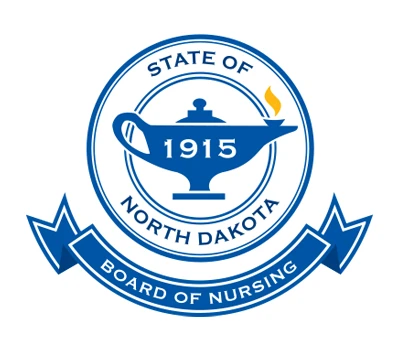Public Comment on Draft Practice Guidance: Role of Licensed Nurse in Retail Intravenous Therapy Settings
Guidance regarding the interpretation and application of the Nurse Practices Act (NPA) may be adopted by the ND Board of Nursing (NDBON) as a means of providing direction to licensees and stakeholders who seek to ensure safe nursing practice and to address issues of concern relevant to public protection. (North Dakota Century Code (NDCC) 43-12.1-08(2)(p)).
NDBON approved practice guidance does not carry the force and effect of the law/rules. Each licensed nurse (nurse) is “responsible and accountable to practice according to the standards of practice prescribed by the NDBON and the profession”; and must “accept responsibility for judgments, individual nursing actions, competence, decisions, and behavior in the course of nursing practice.” (Standards of Practice, North Dakota Administrative Code (NDAC) 54-05-01-07 and 54-05-02-04). “Competence”: means the application and integration of knowledge, skills, ability, and judgment necessary to meet standards. (NDAC 54-01-03-01(16)).
NDBON has received concerns from the public and other professional licensing boards regarding client-driven and elective intravenous (IV) therapies in retail settings (i.e. medical offices, clinics, and other business models, which may include, but are not limited to, IV hydration/therapy clinics, medical spas, and mobile IV infusion services). These retail IV therapy settings offer menus that address energy, fatigue, beauty enhancement, age management, immunity, hydration, hangovers, athletic recovery, and/or weight loss etc. The clients choose IV therapy options which may include vitamins, minerals, and/or prescription drugs (additives) added to IV fluids.
At the national level, retail IV therapy settings are becoming increasingly common, and incidents of patient harm, including death, have been reported in several states. In addition, there is concern about unsafe practices, which may include lack of appropriate prescriber involvement, inadequate prescriber assessment prior to developing the client-specific prescribed regimen, nursing practices outside of scope, delegation of tasks to unqualified individuals, unlicensed practice of medicine, and inappropriate/unsafe compounding of medications.
The Food and Drug Administration (FDA) issued a compounding risk alert in October 2021 to caution healthcare providers about drug products being prepared under unsanitary conditions in retail IV therapy settings. The alert warns that businesses are compounding drugs that may not meet the conditions of the Federal Food, Drug, and Cosmetic Act or comply with state regulations.
Definitions related to this Practice Guidance
- Dispensing: the preparation and delivery of a prescription drug, pursuant to a lawful order, in a suitable container appropriately labeled for subsequent administrations to or use by a patient. The Board of Pharmacy provides an exemption to a duly licensed practitioner of medicine supplying the practitioner’s own patients with such remedies as the practitioner may desire for a patient’s immediate needs, etc. NDAC 54-05-03.1-10 (5); NDCC 43-15-8; NDCC 43-15-02; NDAC 61-04-02-01.
- Medication administration: delivery of medication by a licensed nurse or an individual delegated to and supervised by a licensed nurse, to a client whose use of that medication must be monitored and evaluated applying specialized knowledge, skills, and abilities possessed by a licensed nurse. NDAC 54-01-03-01(44).
- Nursing: the performance of acts utilizing specialized knowledge, skills, and abilities for people in a variety of settings. Acts may not be deemed to include acts of medical diagnosis or treatment or the practice of medicine as defined in chapter 43-17. NDCC 43-12.1-02(5).
- Prescriber: a qualified healthcare professional who is educated, trained, and licensed to perform the services authorized in the treatment plan. This individual must be a Physician, Physician Assistant, or Advanced Practice Registered Nurse (APRN) with Prescriptive Authority.
- Prescriptive practices: assessing the need for drugs, immunizing agents, or devices and writing a prescription to be filled by a licensed pharmacist. NDCC 43-12.1-02(6).
- Prescription: any order for drugs or medical supplies, if such order is written or signed or transmitted by an individual licensed by law to prescribe and administer such drugs or medical supplies, etc. NDCC 43-15-26.
- Telehealth: is acceptable for physical assessment/evaluation by a prescriber to ensure an established and ongoing relationship between the client and prescriber. NDCC 26.1-36-09.15(1)(g).
Role of the Nurse in Retail IV Therapy Settings
- The nurse is responsible and accountable to remain within legal scope and standards of practice, which excludes medical diagnosing, determining medical treatment, and/or prescribing/dispensing of FDA-approved agents/devices unless the nurse is an APRN with Prescriptive Authority. NDCC 43-12.1-02(5); NDAC 54-05-02-04; NDAC 54-05-02-05; NDAC 54-05-03.1-10; NDAC 61-04-02-01; Board of Pharmacy Administrative Guidelines for Practitioner dispensing in ND.
- Prescribers must establish a prescriber-client relationship by performing an initial, documented history and physical assessment and developing a client-specific plan before implementing any medical treatment, including retail IV therapy. The medical clearance of a client does not meet the requirements of a client-specific plan of care. A change to the treatment plan or initial order (i.e., type of treatment, location of treatment, product changes, dosage changes) requires an additional history and physical assessment to be completed by the prescriber BEFORE implementing the new plan of care. NDAC 54-05-03.1-03.2 (1)(a)(b)(c)(e).
- The use of telehealth does not exempt the licensed nurse from following the legal scope and standards of practice in ND set forth in the ND NPA and NDAC Title 54.
- FDA-approved medical agents/devices require prescriptive authority to initiate, plan, order, prescribe, and dispense.
- Determining medication dosages is an element of prescribing. It is not within the scope of practice of a registered nurse (RN) or IV-certified licensed practical nurse (LPN) to select a medication/solution, determine a dosage, device, or device setting for IV hydration. NDAC 54-05-03.1-10.
- The RN or IV-certified LPN cannot independently purchase or obtain drugs or equipment to perform IV therapy.
- An order from a prescriber to administer medication or IV therapy (including hydration) is required before an RN or IV-certified LPN may provide such services.
- Once the treatment is given or being given, the client must be monitored by the nurse or
prescriber for adverse reactions to treatment. If there are adverse reactions, those must be documented and communicated to the prescriber. - The nurse must maintain standard nursing documentation, including at least the following:
- Medical history data;
- Education provided to the client on the prescribed IV therapy;
- Witness of signed informed consent completed by the prescriber for the procedure(s);
- Written pre-IV infusion education;
- Nursing assessments, including vital signs, notes, and prescriber orders (including the IV fluid and additives);
- Specific procedures performed and client’s response to procedure;
- Client reaction/tolerance to the IV therapy, and interventions required to mitigate or correct adverse outcomes; and
- Post IV infusion care instructions, signs and symptoms to seek medical care if an emergency presents itself, and recommended follow-up or when to contact the prescriber.
Standing Orders or Protocols
Standing orders or protocols are not valid prescriptions without a prescriber-client relationship. It is unlawful for anyone to administer a prescription drug without a valid prescription. Standing orders issued by a prescriber in general for any/all clients in retail IV therapy settings or any setting must include the following:
- A valid prescriber-client relationship;
- An initial and appropriate prescriber assessment for a client-specific plan of care;
- A prescriber order for IV fluids and additives appropriate for the specific client; and
- Elements of the prescriber-client relationship must be documented, including the client assessment, diagnosis or condition, therapeutic regimen, and evaluation of treatment. NDAC 54-05-03.1-03.2.
Contributions from the North Dakota Board of Pharmacy
The ND NPA and NDAC Title 54 do not include compounding. NDCC 43-15 Pharmacists govern the act of compounding, the distribution of drugs, and other medical equipment commonly used in IV therapy models of business. The supply chain is regulated by the Board of Pharmacy, and licensure is required prior to soliciting or conducting business in North Dakota. Many products involved in a traditional model of IV therapy are considered legend drugs and equipment. A wholesale company must only ship to authorized individuals. Given North Dakota does not license clinics, the prescriber(s) must be the responsible party for receipt and storage of these legend drugs under their control.
All medications must be obtained in compliance with both federal and state laws, which include The Wholesale Drug Distributor Licensing Act, statutes governing the practice of pharmacy, the federal Drug Supply Chain Security Act, and the federal Compounding Quality Act, among others and their implementing regulations. Regulations have been adopted by the state and federal government under these Acts, as applicable.
Additionally, the United States Pharmacopeia (USP) is the recognized standard of care for all forms of compounding and is legally required for compounding in the state of North Dakota. USP chapter 797 sets standards for sterile compounding and applies to all prescribers and personnel who prepare compounded sterile preparations like IV therapies. USP 797 contains a provision for immediate use that would allow circumvention of USP requirements. However, that provision is very limited, and the conditions listed in the chapter need to be met. One of the most relevant conditions is that the preparation involves no more than three (3) different sterile products.
References:
Federation of State Medical Boards (FSMB). (2024). NABP, FSMB, NCSBN Join Federal Agencies in Educating Regulators and Practitioners on Risks of IV Hydration Clinics. FSMB.
https://www.fsmb.org/advocacy/news-releases/nabp-fsmb-ncsbn-join-federal-agencies/
Nebraska Board of Nursing. (2023, November). IV/Infusion Therapy. Advisory Opinion.
https://dhhs.ne.gov/licensure/Documents/IVInfusion.pdf
North Carolina Board of Nursing. (2022. September). Administration of Intravenous Fluids (IV Hydration), Nutrient Therapies, and Medications for Hydration, Health, and Wellness. Position Statement.
https://www.ncbon.com/sites/default/files/documents/2024-03/ps-iv-hydration-clinics.pdf
North Dakota Administrative Code, Article 54-05. Standards of Practice.
North Dakota Century Code, Chapter 43-12.1. Nurse Practices Act.
North Dakota Century Code, Chapter 43-15. Pharmacists.
South Carolina State Boards of Medical Examiners, Pharmacy, and Nursing. (2023, August 15). Joint Advisory Opinion of the South Caroling State Boards of Medical Examiners, Pharmacy, and Nursing Regarding Retail IV Therapy Businesses. South Carolina Department of Labor, Licensing and Regulation.
https://llr.sc.gov/bop/news/2023/BOP-IVHydration.pdf
Vermont Office of Professional Regulation and Boards of Medical Practice, Nursing, Osteopathic Medicine, and Pharmacy. (2024, June 5). Joint Statement Regarding IV Therapy Clinics and Medical Spas. Vermont Department of Health.
https://cms.sec.state.vt.us:8443/share/s/BkbNX5AyQVSVpN_btvrkNw
Wyoming State Board of Nursing. (2024, June). Infusion Therapy Procedures. Advisory Opinion
https://drive.google.com/file/d/1mGdE74LFpZs4vgaAAyxQUnIRtB7YlRWv/view
Share this content
Menu
Contact Us
Follow Us

